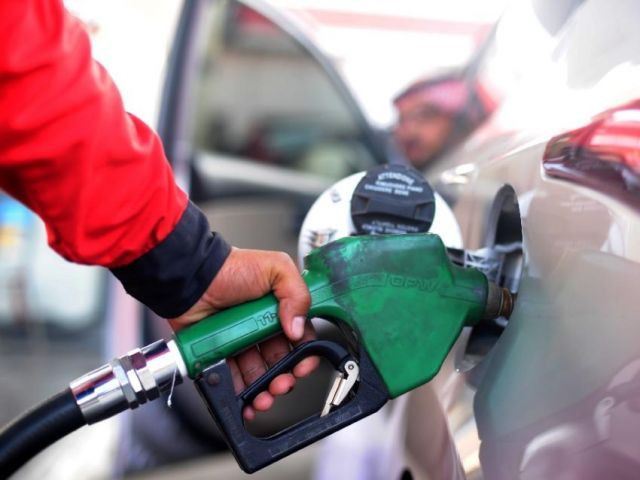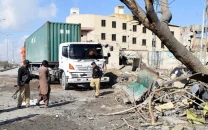Domestic fuel prices to rise amid Russia-Ukraine crisis
Sources say petroleum prices may increase by Rs12.33 per litre from Feb 16

Pakistanis may see another surge in fuel prices following fluctuations in global crude oil prices over the Russia-Ukraine crisis.
Amid international tensions, global oil prices jumped from $85 per barrel to $94 per barrel. Crude oil peaked at $96.16 per barrel, the highest since October 2014, before settling down at a slightly lower figure.
It is worth mentioning here that Pakistani consumers had faced a partial fortnightly increase in oil prices earlier this month.
For the past two weeks, the average crude oil price stood at $94 per barrel. Meanwhile, the rupee strengthened by 1.50 against the dollar.
Sources say that keeping in mind the slight appreciation of the rupee, fuel prices are likely to go up by Rs12.33 per litre from February 16. This figure includes the petroleum levy and general sales tax. This, however, is conditional to the government’s decisions, i.e. if it opts to pass on the full impact of increasing oil prices to the public.
If this scenario is to be accepted, the price of high-speed diesel may go up by Rs10.02, kerosene oil by Rs10.08 per litre, and light diesel oil by Rs9.43.
As for jet fuels, the price of JP-1 is likely to go up by Rs6.07 per litre, JP-4 by Rs6.02 and JP-8 by Rs6.07. This may also prompt airlines to increase passenger and cargo fares. Moreover, furnace oil may also get more expensive as an increase of Rs1,397 per tonne appears likely.
Read Geopolitical unrest feared to lift petrol price to Rs200-225
It is worth noting that there has been an increase in the ex-refinery price of petrol by Rs8.33 per litre, while high-speed diesel saw a surge of Rs6.02, kerosene oil Rs6.08, and light diesel oil Rs5.43.
After completing its calculations, the Oil and Gas Regulatory Authority (OGRA) will send a summary to the Petroleum Division for final approval.
High-speed diesel is widely used in the transport and agriculture sectors, and an increase in their prices would impact the masses heavily because of a potential surge in inflation.
Petrol is used in cars and motorbikes, and in the absence of electric vehicles in the country, its only alternative is compressed natural gas (CNG). Kerosene oil is commonly used in remote areas of the country, primarily for cooking, as liquefied natural gas (LNG) is not usually available there. Pakistan’s security forces are also among the major consumers of kerosene oil in far-off areas, including the northern parts of Pakistan.



















COMMENTS
Comments are moderated and generally will be posted if they are on-topic and not abusive.
For more information, please see our Comments FAQ